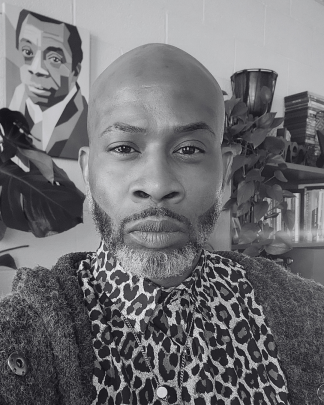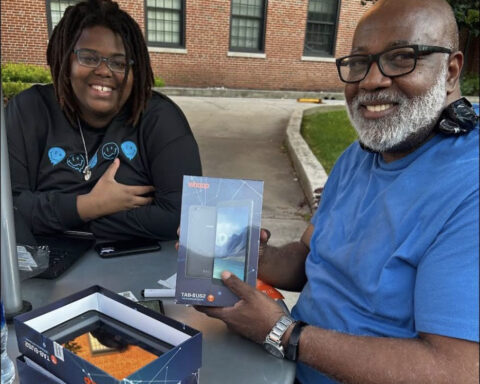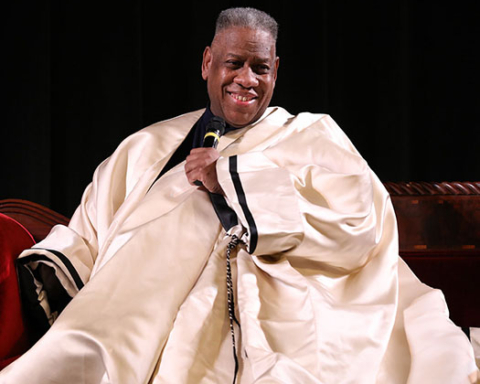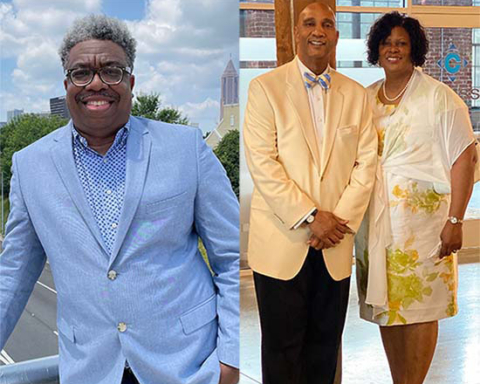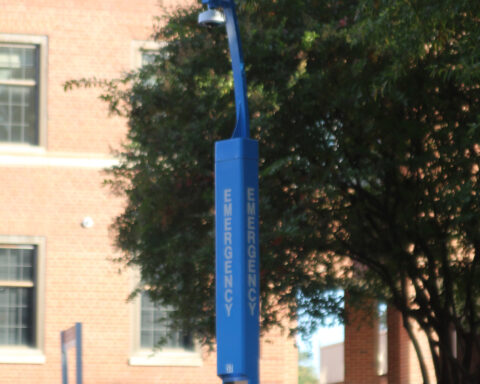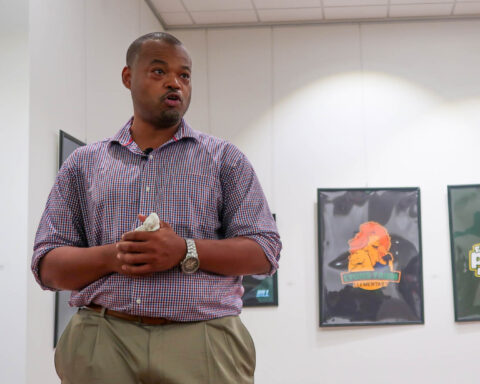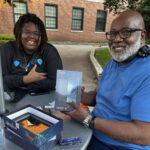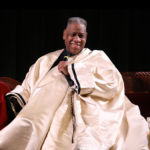Being educated always ran deep for Language and Literature adjunct Al-Tariq Moore. As a young child, his parents would call him out to “do it, do it, do that thing” whenever their friends visited. That thing was “to pronounce four or five syllable words.” And have him read from their set of encyclopedias. He was always far ahead of his grade level.
He would be college bound after completing high school. He arrived as an undergraduate at N.C. Central University in 1993. In his junior year, after losing financial support from his family, he dropped out. It would be a long time before he returned to complete his degree.
“Life happened,” said Moore. “I got married and, you know, some more stuff, and I stayed out for like 11 years.”
Despite his large hiatus, he returned and earned his diploma. But now he was unsure of where this achievement would take him.
“So, what’s next?” he said, wondering. “I didn’t know what I was going to do. Like what do you do with an English degree?”
Moore then said that he was walking down the very hall his office is now located in Farrison-Newton.
“And in my head, praying, I guess you say. And I’m like I need some kind of sign to see what my next steps are.”
And that’s when Language and Literature associate professor Michele Ware stepped directly into his path and changed his life with one simple question: “Are you going to grad school?”
Ware, he said, told him she had access to funds for him to go even further.
“You need to be going to graduate school,” she said. “You need to be teaching. You need to be writing books.”
And that’s exactly what he’s been doing since that chance encounter with Ware. He earned his master’s degree in NCCU’s Department of Language and Literature.
Then he admitted to UNC Chapel-Hill where he earned his doctorate in the Department of English and Comparative Literature with a dissertation on 20th Century African American Literature.
At Chapel Hill, Moore was the only Black student in his cohort of 16. He said he felt “somewhat isolated and alienated.” Luckily, he connected with several Black faculty including James Coleman, before he passed, and GerShun Avilez.
Moore also said that famed North Carolina storyteller Randall Kenan, was a significant influence. He even examined Kenan’s book “A Visitation of Spirits” in his dissertation.
Moore would soon contribute a chapter on masculinity examining the work of Ralph Ellison. Here he explored how masculinity limited societal narratives and erases queer contributions in Black history — issues especially important to himself.
He analyzed a chapter that was deleted from “Invisible Man.” That deleted chapter, which Moore found in the Library of Congress in Ellison’s archives, was about a gay professor and, Moore argued, was excluded, even though it was pivotal to the story.
Now, Moore is an English professor at NCCU. In this role, his teaching philosophy centers on nurturing student independence. Rather than simply providing answers, he motivates his students to ask questions, engage in research and discover solutions on their own.
Moore is also the founder and adviser of the James Baldwin Society, an NCCU student organization. The mission of the society is to promote intellectual growth, encourage students to study Baldwin’s works, and engage in debates on social and criminal justice.
Moore, and the students of the society, are now planning a conference about James Baldwin that will feature art, literature and scholarship from students worldwide.
While teaching, Moore encourages students to explore issues like environmental racism.
“In Moore’s class I learned that many Black communities are surrounded by negative living spaces like hazardous waste sites contributing to health disparities,” said a student in his English composition class.
He emphasized that marginalized communities often live near pollution sources or in food deserts, neighborhoods with little or no access to large grocery stores.
Moore’s awareness of these issues grew through student assignments and projects, helping him further realize the importance of recognizing and addressing inequities.
“Now I understand in the grand scheme of things, the divine, you might say, that this is a part of my purpose,” said Moore, reflecting on his career. “I can’t imagine myself doing anything else.”

